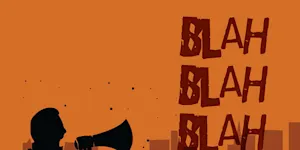What Makes This Word Tick
"Libertine" is like a capricious feather in the hat of the English language—often associated with someone who dances on the edges of society's rules with nary a care. It describes a person, especially a man, who behaves without moral principles or a sense of responsibility, particularly in sexual matters.
If Libertine Were a Person…
Picture a charming rogue, perhaps a dashing figure from a classic novel, with a mischievous twinkle in their eye and a devil-may-care attitude. This person might be continuously torn between societal expectations and personal indulgence, never quite settling down.
How This Word Has Changed Over Time
Initially, a "libertine" was someone who was freed from slavery or bondage. Over the centuries, it evolved to imply a person devoid of conventional moral restraints, especially in a libertarian sense, before narrowing its focus to its more salacious connotations today.
Old Sayings and Proverbs That Use Libertine
You won't find "libertine" spattered across ancient proverbs, but it dances near adages about freedom and unbridled desires. Historically, the spirit of a libertine might echo in tales admonishing the excesses of indulgence.
Surprising Facts About Libertine
Did you know the word "libertine" once had connotations of intellectual and philosophical liberty? It wasn't just about flouting morality but also about challenging societal norms and conventions with wit—and sometimes wine.
Out and About With This Word
Today, "libertine" still pops up in descriptions of raucous parties or characters in literature and art, often embodying the pursuit of pleasure over responsibility. It's a favorite in narratives exploring the tension between freedom and societal constraints.
Pop Culture Moments Where Libertine Was Used
In the 2004 film "The Libertine," Johnny Depp portrays John Wilmot, the Earl of Rochester, encapsulating the word's essence. It delves into the hedonistic yet tragic life of a man led by desire.
The Word in Literature
"Libertine" saunters through the pages of classic literature, often tagging along with morally ambiguous characters. Authors like Oscar Wilde and Marquis de Sade explored libertine themes, equating romantic and moral nonconformity with a quest for freedom.
Moments in History with Libertine
The term flourished during the Enlightenment, a period ripe with philosophical questioning and personal exploration. Figures like Casanova became synonymous with libertine excesses, embodying the 18th-century aristocratic flamboyance.
This Word Around the World
Around the globe, "libertine" may translate into different cultural shades. In French, it similarly refers to someone licentious. Meanwhile, some cultures highlight its historical roots in freedom, reflecting a broader interpretation.
Where Does It Come From?
"Libertine" traces back to the Latin "libertinus," denoting a freed person or former slave. As it journeyed through France's Old French as "libertin," its meaning broadened to encompass a sense of unleashed restraint.
How People Misuse This Word
People often misapply "libertine" as a mere synonym for "playboy" or "deviant," ignoring its nuanced history of intellectual rebellion and philosophical freedom.
Words It’s Often Confused With
Liberal: A political and social philosophy favoring progress and reform, not specifically tied to personal morals.
Libertarian: Focuses on minimal state intervention, especially regarding personal freedoms, sometimes confused due to their mutual origin in freedom.
Debauched: Describes excessive indulgence in sensual pleasures, typically lacking the philosophical overtones of "libertine."
Additional Synonyms and Antonyms
Synonyms include "debauchee," "profligate," and "hedonist." Antonyms such as "puritan," "ascetic," or "moralist" depict self-restraint in stark contrast to a libertine's nature.
Want to Try It Out in a Sentence?
Even in the most august assembly, his reputation as a libertine preceded him, leaving a trail of scandalized whispers and raised eyebrows in his wake.
















